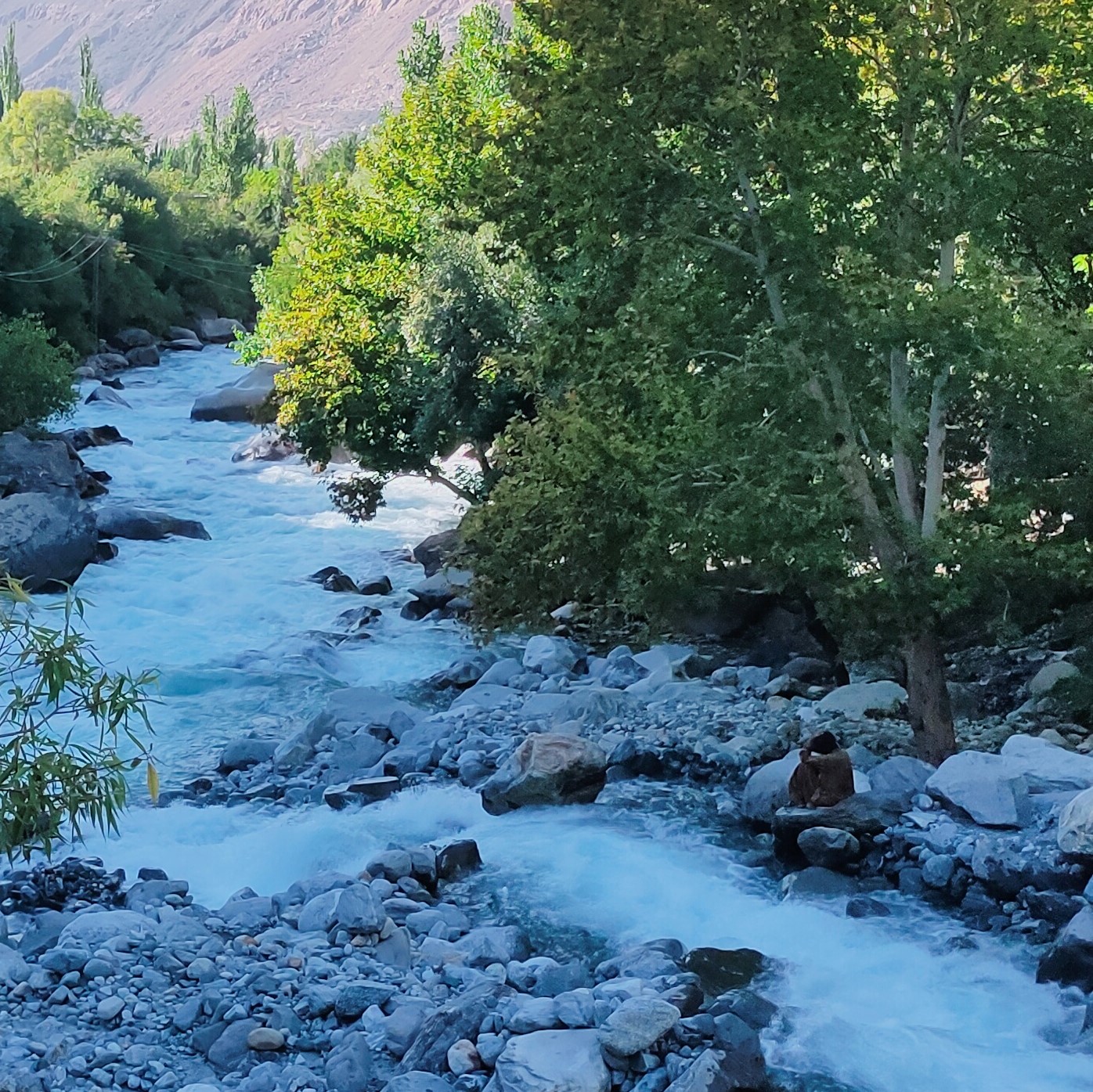The residents of Basin, a densely populated region in Gilgit, consistently engage in flood prevention measures. This proactive approach isn’t due to flood predictions but because some sections of the banks along an age-old mountain stream flowing through the area have weakened. The stream’s water frequently spills over these compromised banks, resulting in recurrent damage to local homes and fields.
Named the Sardar Kohl Water Channel, this waterway stretches approximately fourteen and a half kilometres (km). Originating from the popular tourist destination Kargah, this stream navigates through Basin, Napora, Khar, and Naikoi, eventually merging with another channel, Kohl Bala, near the IG House.
In Gilgit, agricultural water needs are fulfilled via mountain streams. Within this region are eight primary canals, including Sardar Kohl, which were established by carving through the mountains during the Dogra Raj era before Pakistan’s formation. These canals redirected mountain water, enabling its distribution to various areas, ensuring water availability for diverse purposes.
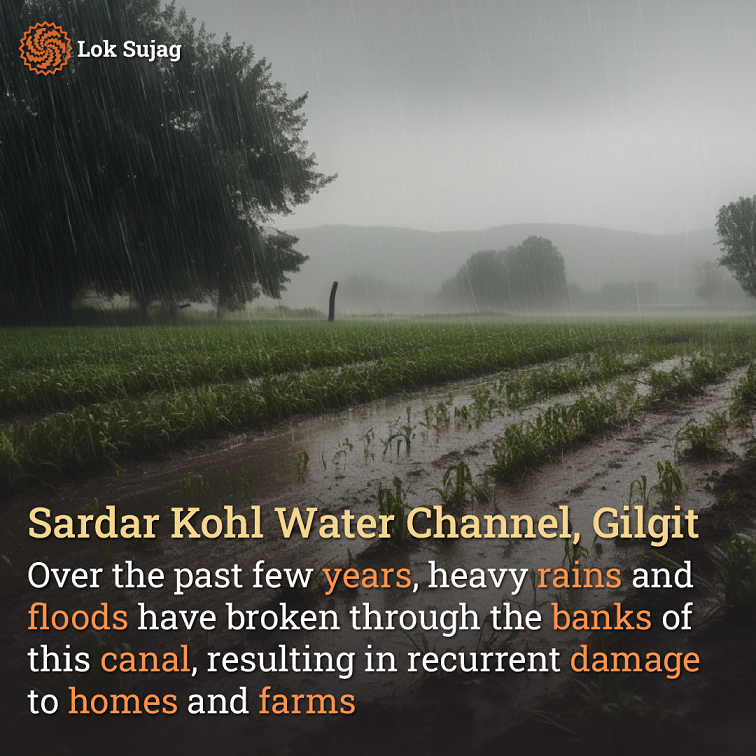
Irfan Siddique, a resident of Basin, resides in an area traversed by the Sardar Kohl water channel. He explains that this canal fulfils the local populace’s water requirements. However, in recent years the canal’s banks have been breached due to heavy rains and floods, worsened by the absence of an annual drainage cleaning system, and various items accumulating in the waterway lead to flooding. The canal’s weakened banks prove inadequate in preventing these flood situations.
Hussain Shah, a resident of Basin’s Kashmiri neighbourhood, recounts that the canal’s water deluged the village just before the last Eid-ul-Fitr. Unable to halt it there, the residents quickly went to the Kargah Nala. They attempted to delay the water’s flow by constructing barriers. However, the streets were submerged upon their return, and the floodwaters had penetrated both homes and fields.
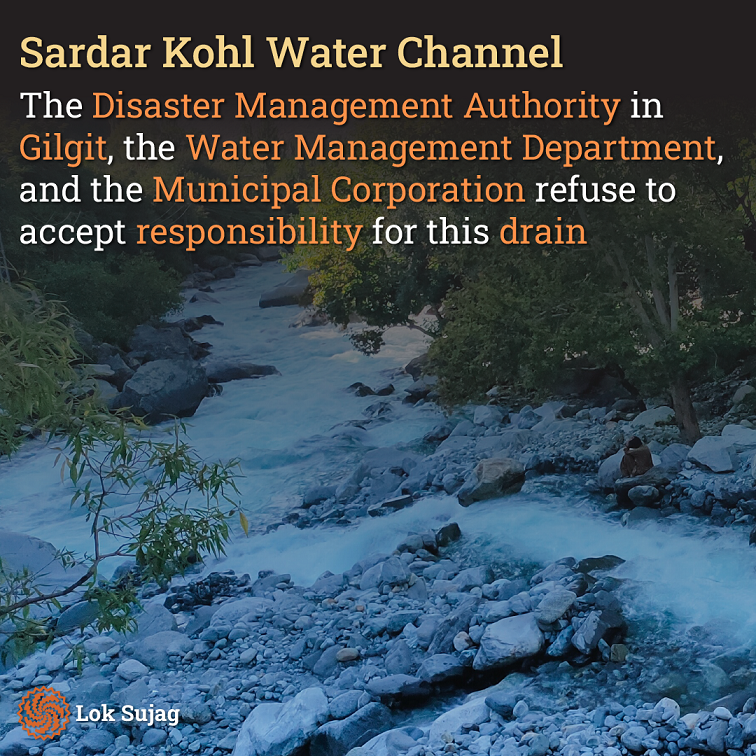
He says that what was once a blessing for the Nala Basin population and surrounding areas has now become a burden. The local community has submitted petitions and staged twenty protests urging government agencies to mend banks, yet the administration has failed to act.
In Gilgit, the Disaster Management Authority (DMA) refuses to take responsibility for the canal. Shahzad Ahmed, assistant director of DMA, says that this water incident occurred for the first time during his tenure. He says the report and relevant recommendations have been submitted to the Water Management Authority. He also says that the construction and repair of the canal banks is not his department’s responsibility.
Burhan Effendi, secretary of the water management department in Gilgit, states that this water channel is not technically under their jurisdiction, as it lies within an urban area. In contrast, their responsibilities primarily cover areas outside urban regions.
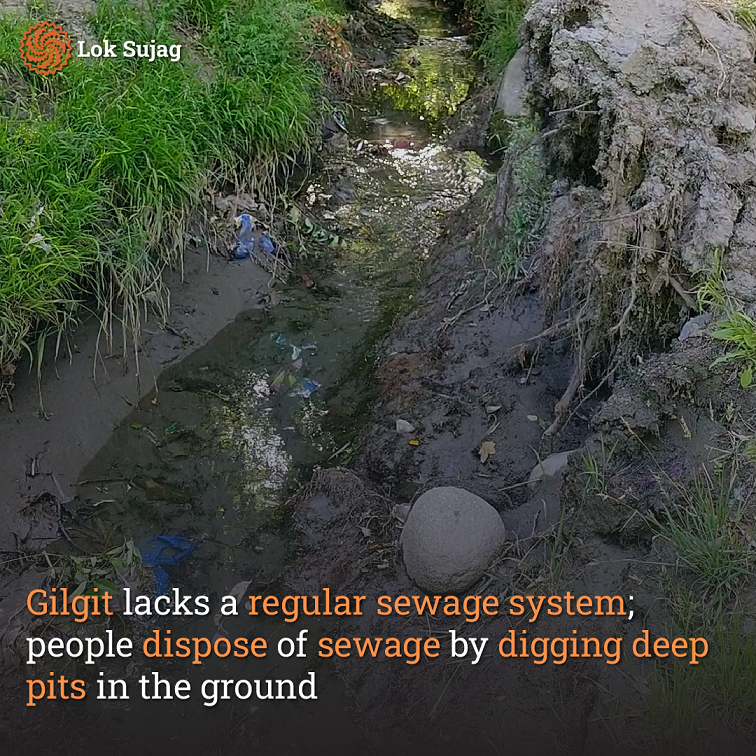
Abid Hussain, Chief Officer of Municipal Corporation Gilgit, places the blame on his department for the repair and maintenance of the drain. He says that the municipal corporation’s responsibility revolves around preventing water theft, a task they have appointed a watchman at the canal.
In June 2022, the Chief Minister of Gilgit-Baltistan directed the Gilgit Development Authority, Municipal Corporation, and District Administration to formulate a comprehensive policy for maintaining and repairing all drains. The directive was to be presented for approval during a cabinet meeting. It has been nearly a year since these instructions were issued, but according to government spokesperson Ali Taj, no proposals regarding this matter have been submitted to the cabinet.
Ali Taj also states that the Water Management Department had drafted a PC-1 proposal for cleaning and repairing the drains, and they presented it in the appropriate forum. “However, the proposal was not approved, so we cannot proceed with the sewerage project until its completion.”
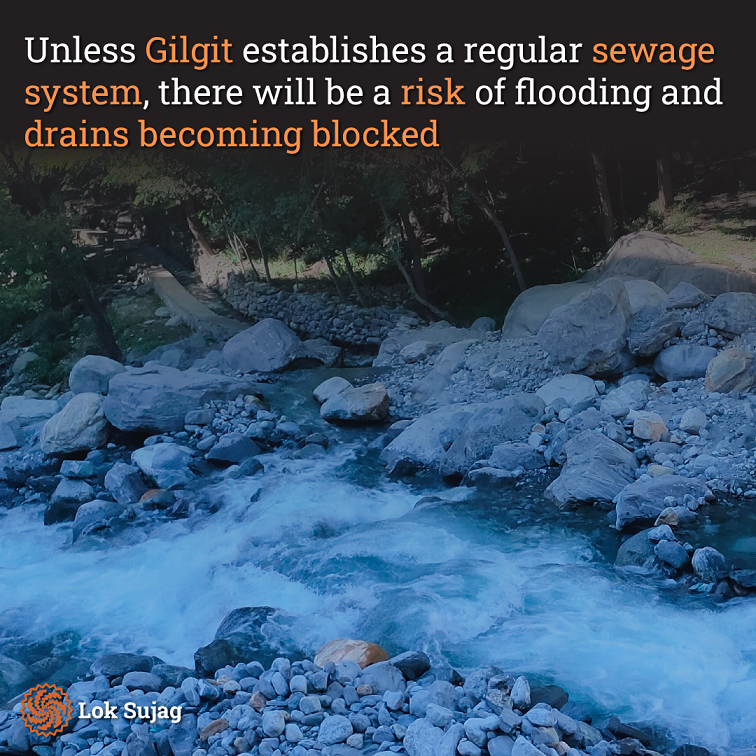
Burhan points out that Gilgit lacks a consistent sewage system. Residents usually dispose of sewage water by digging deep pits in the ground. This results in some water being absorbed into the soil while the remainder finds its way into irrigation canals. In various localities, sewage water is directly pumped into these channels, accumulating debris at the drains’ bottoms. This buildup disrupts the water’s natural flow.
Also Read
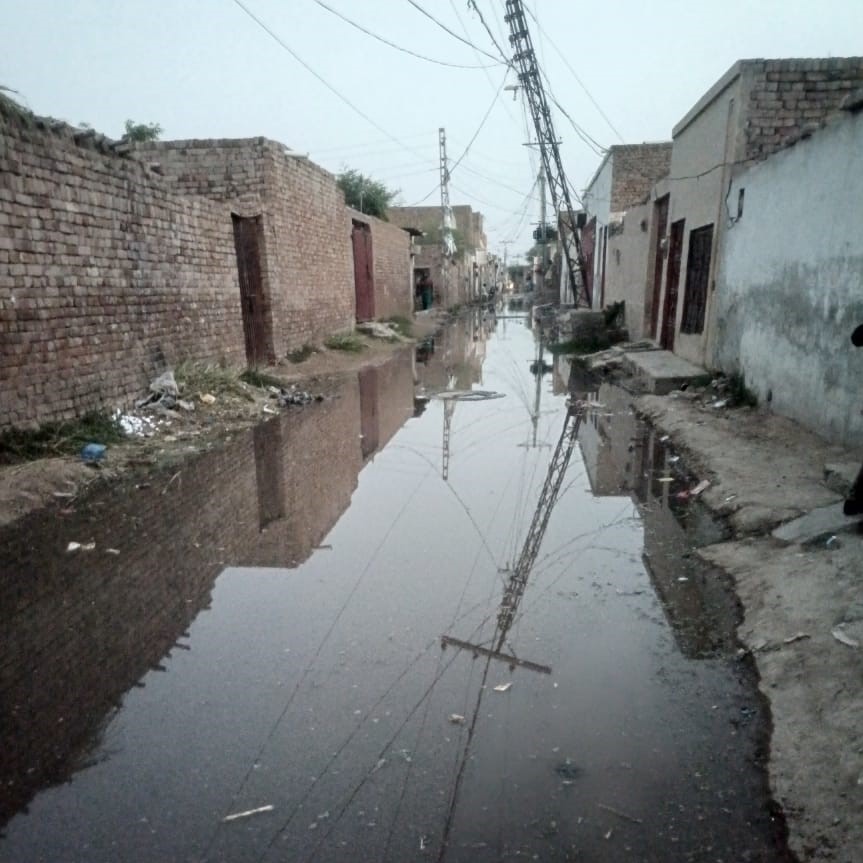
Sewage problems in Kabirwala: Urgent need for upgrading and expanding the sewerage system
He asserts that the absence of a consistent sewage system in Gilgit poses a flooding risk to the canals and increases the likelihood of their banks breaking.
In 2019, the federal government formulated a project costing 3.05 billion rupees to establish a sewage system in Gilgit. However, there have been concerns about a significant surge in its cost. Official sources say that the project’s tendering process has concluded, and the commencement of work is anticipated by July.
Deputy Commissioner Gilgit, Osama Majeed Cheema, emphasises that the solution for this situation involves active participation of the local population in the drain cleaning process. He says the community has historically undertaken this cleaning task, known as ‘Hala Sheri’. However, this practice has declined in recent years, leading to a decrease in drain capacity.
Published on 9 Aug 2023
